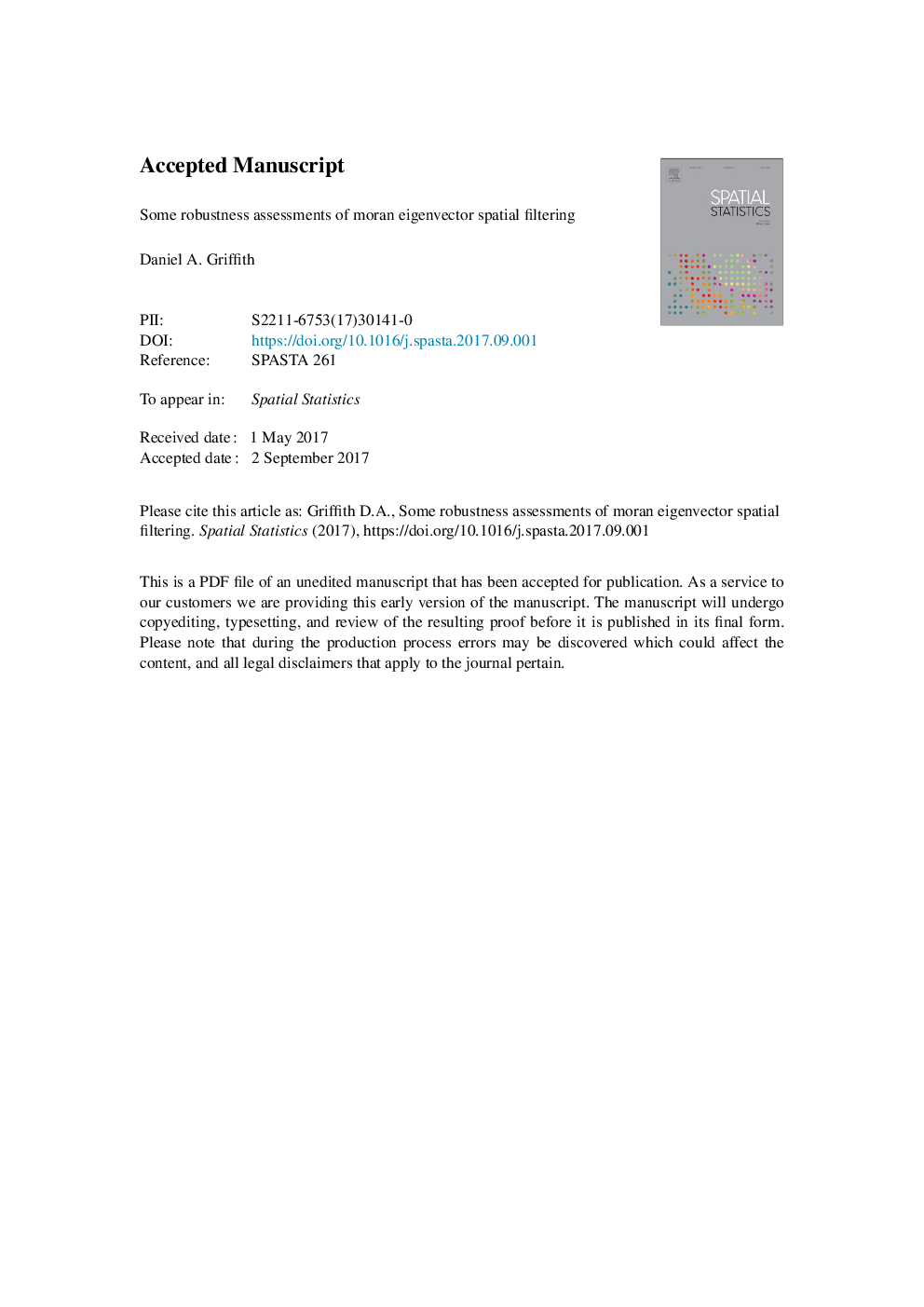| Article ID | Journal | Published Year | Pages | File Type |
|---|---|---|---|---|
| 7496503 | Spatial Statistics | 2017 | 33 Pages |
Abstract
Moran eigenvector spatial filtering (MESF) is a novel methodology in the spatially varying coefficients tradition promoted in spatial statistics, quantitative geography, and statistical ecology that deals with spatial autocorrelation in georeferenced data. Its Moran Coefficient based estimators exhibit statistical properties of unbiasedness, efficiency, and consistency. Evidence is accumulating that it also exhibits robustness, or good performance with georeferenced data drawn from not only normal, but also at least Poisson and binomial, probability distributions. This paper further explores this performance. In doing so, it addresses the sensitivity of MESF results to changing: (1) the employed spatial weights matrix specification for constructing MESF synthetic variates, in space, space-time, and spatial flows network structures; (2) the design of Monte Carlo simulation experiments; (3) cross-validation type imputation estimators; (4) the nature of embedded geographical dependence to include negative spatial autocorrelation (SA) components; and, (5) the SA index (e.g., the Geary Ratio) basis of eigenvector spatial filter (ESF) estimators. Empirical illustrations involve 2010 county resolution population density across the state of Texas.
Related Topics
Physical Sciences and Engineering
Earth and Planetary Sciences
Earth and Planetary Sciences (General)
Authors
Daniel A. Griffith,
